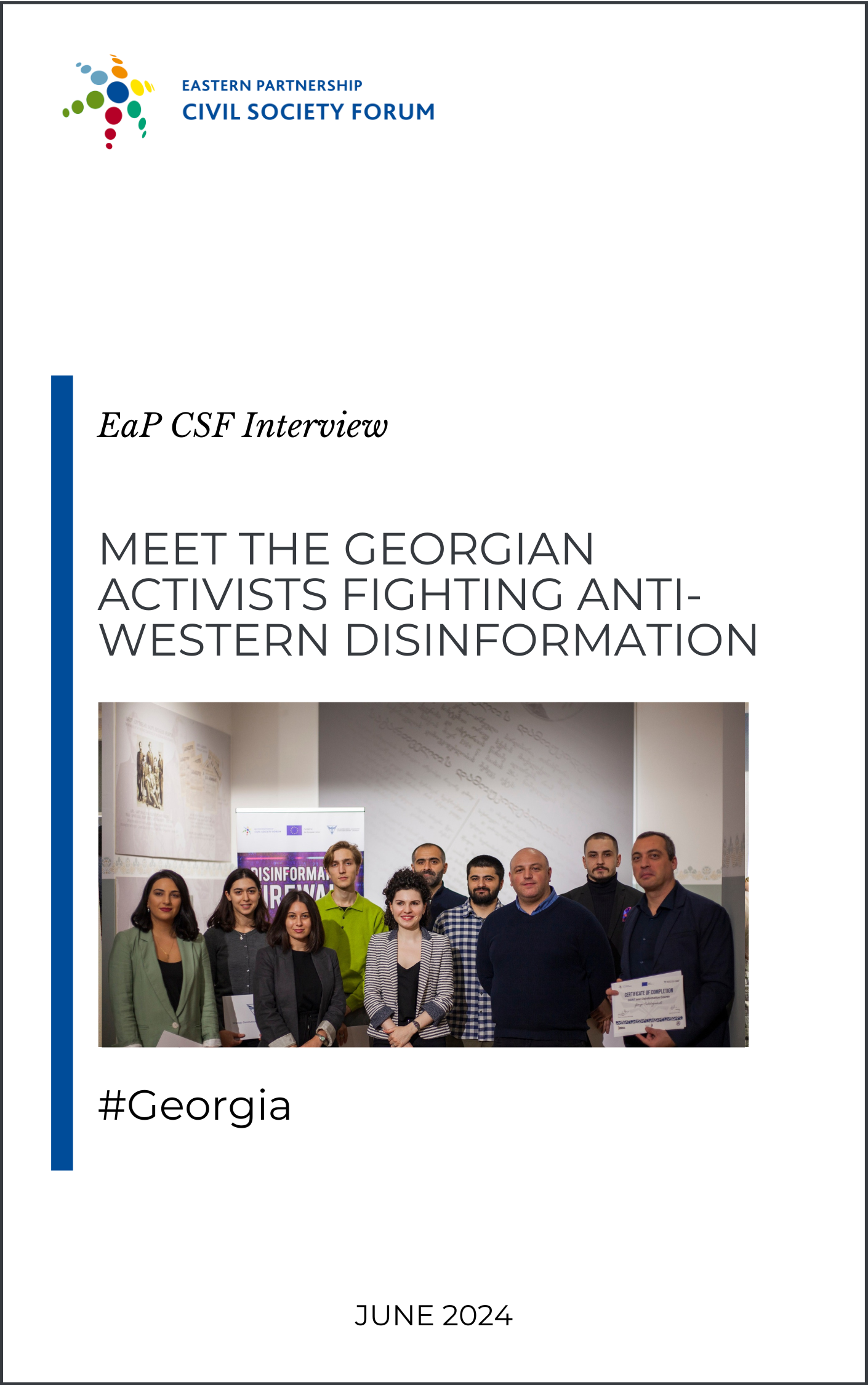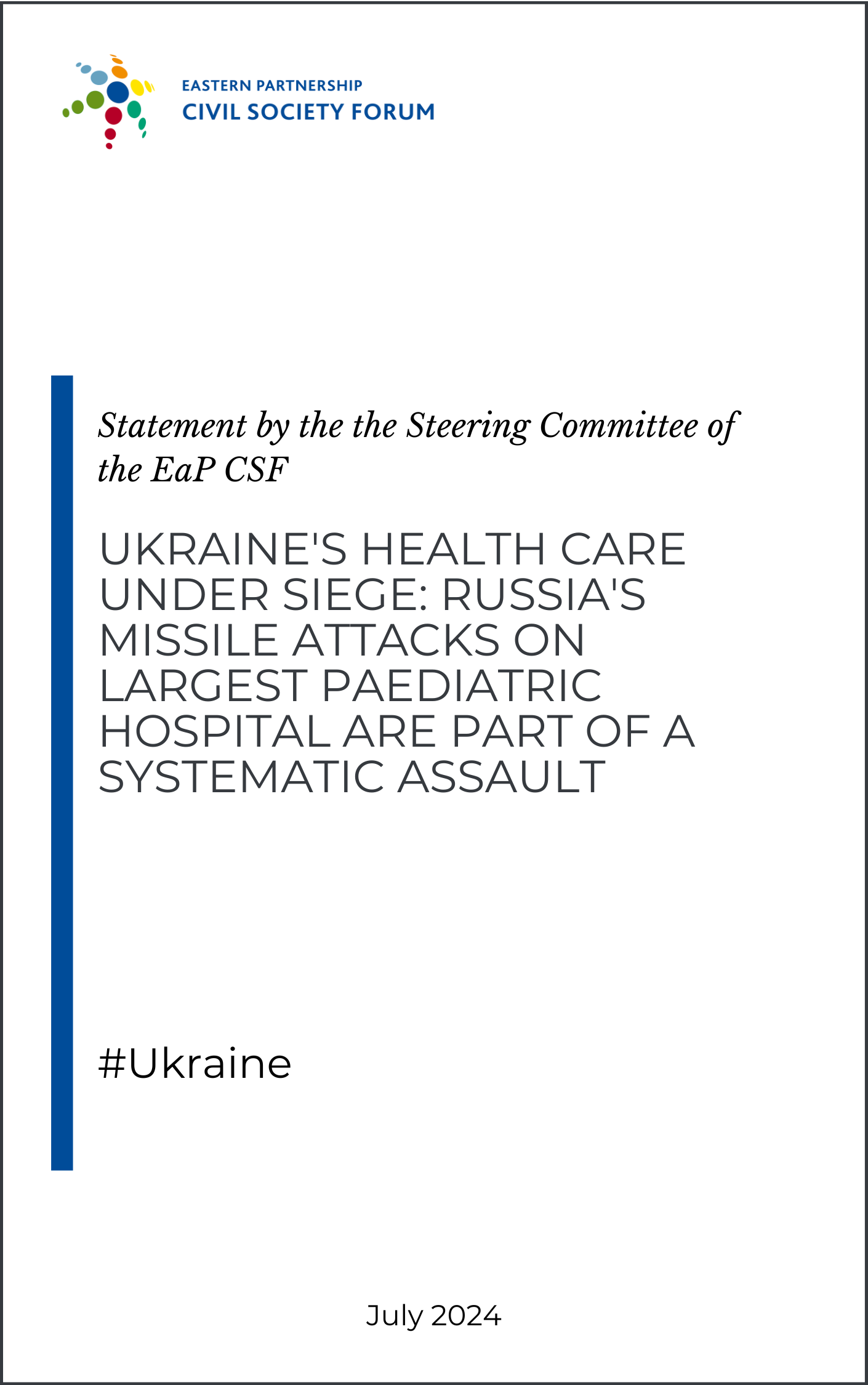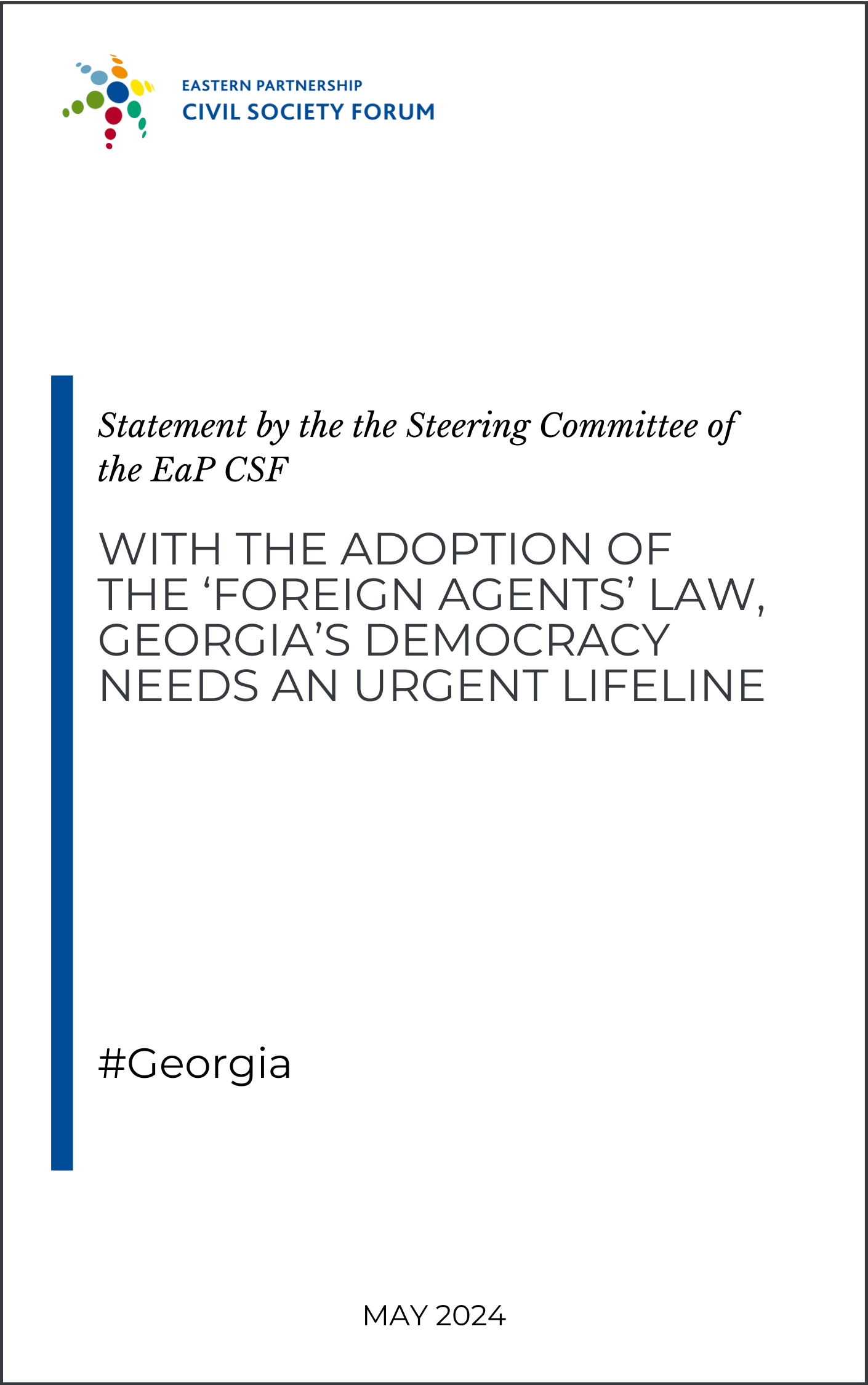Civil Society Leaders Assembled in Tallinn to Debate on Tangible Results of the Eastern Partnership ahead of the Brussels Summit

On 25-27 October Tallinn hosted the EaP Civil Society Conference and 9th EaP CSF Annual Assembly. The event attracted over 300 attendees, speakers and guests who attended more than 50 sessions of different formats focusing on the issues most topical for the civil society.
For the first time this year, the Annual Assembly and the Civil Society Conference – conducted as a side event to the Eastern Partnership Summit on a biennial basis –were merged into one event with a common agenda. It was organised jointly by the EaP CSF and the Estonian Center of Eastern Partnership under the auspices of the Estonian Presidency of the Council of the European Union.
Co-Chair of the EaP CSF Steering Committee Hennadiy Maksak and Jaan Reinhold, Estonia’s Ambassador-at-Large for the Eastern Partnership, opened the key EaP civil society event of the year held under the title Tangible Results for People: Envisioning the Eastern Partnership in 2020 and Beyond.
“Civil society’s engagement is an integral part of bringing democratic values and good governance to each of the six partner countries. However, our mission is not that simple. We face many twists and turns on our path of fighting corruption, human rights abuses, injustice and poverty.”
“Constructive engagement of civil society with governments at a grassroots, local, and national level is a vital part of democratic governance building. A vibrant civil society sector is furthermore crucial for private sector development, sustainable economic growth, successful environmental policies, and social innovation. High-quality sector reform dialogue can only be achieved through increased technical expertise and the stronger leadership of civil society organisations.”
Attendees from the EaP and EU countries
Kersti Kaljulaid, President of the Republic of Estonia, outlined the progress Estonia has achieved in working with the civil society so far. In his keynote speech Commissioner Hahn, underlined that the support to civil society is the very first deliverable in the new EC and EEAS joint working document since empowering the civil society is crucial to deliver on all of other plans and priorities.
“Estonia has chosen a partnership approach as its model for civil society and government relations. […] The approach finds both the government and the civil society imperfect, both having unique strengths and shortcomings. […] It is worthwhile to look at Estonian experience. How did we start our journey, which has lead us not only to an open civic space, but also to the most sustainable NGO community amongst more than 20 Eastern European […] countries?”
“The Eastern Partnership is not about geopolitics or spheres of interest. It is about making a real positive difference for the lives of our citizens. It is a partnership for, not against. It is a partnership for the economy and trade but most of all – for democracy, human rights, rule of law and space for civil society.”
A special ceremony featured the presentation of the EaP CSF Pavel Sheremet Award 2017 to the Azerbaijani journalist Afgan Mukhtarli, in recognition for his courage and outstanding reporting on injustice and human rights abuses in Azerbaijan. It was presented by the EaP CSF Steering Committee member Alexandra Kalatozishvili, and received by his spouse Leyla Mustafayeva who is an independent journalist herself.
“We count on civil society to convey messages to citizens. I urge you to engage with your communities around the world, in the EU and not least in your countries. Societies will not progress without reforms taking root. Your continued engagement on either side of the EU’s eastern border is crucial and we will continue to need strong civil society leaders.“
“For the civil society to be truly considered a partner in the Eastern Partnership countries, there is a need for a strong signal from the EU, especially for those countries where human rights violations exist. The path to democracy can be very long, but we have a responsibility to preserve the democratic perspective in these countries with a step-by-step approach.”
The Civil Society Declaration was adopted as a collaborative effort identifying major obstacles to further democratic development within the EaP countries and to the smooth implementation of the 2020 Deliverables while offering specific recommendations on how governments and civil society organisations can work together to overcome them. It was presented to the Commissioner Hahn as the consolidated civil society position for the Brussels Summit.
The civil society expectations for the Brussels EaP Summit and beyond were featured prominently during the high-level panel focusing on the Eastern Partnership perspectives and challenges. DG NEAR Deputy Director-General Katarina Mathernova emphasised that “civil society has an active role to play in the strategic communication by the EU in the EaP partner countries. The European Commission is changing modalities of supporting CSOs from financing to investing into capacity building.”
Throughout the parallel panels the attendees debated on topics related to the civil society priorities such as regional and economic integration, media and disinformation, digital tools for democratic governance, and government-civil society relations.
The event included a special ceremony dedicated to awarding the three best EaP CSF re-granting projects. The winners have been implementing projects on gender mainstreaming, smart waste management and monitoring energy regulators over the period of 7 months. A variety of projects and publications by the EaP CSF members were presented during the event, including 15 re-granting projects funded this year.
During the stakeholders’ meetings with a multi-country or country-specific focus civil society delivered their messages on selected topics of their interest to the policy makers. Working Groups’ initiated debates focused on rule of law and resilience, favourable environment for SMEs, implementation of the Action Plan for the Environment, youth employment and entrepreneurship. National Platforms’ initiated debates explored civil society’s role in the implementation of the EU-Armenia partnership agreement (CEPA), negotiations on the new EU-Azerbaijan agreement, EU-Belarus partnership priorities, constitutional reform in Georgia, implementation of the reforms in Moldova, and Ukrainian perspective on the 20 Deliverables for 2020.
Working Groups (WGs) meetings focused on the results of the work in 2017 were presented and developing the Annual Work Plans for 2018. The recommendations produced during the event will be used in civil society advocacy based on the priorities of the Forum in the coming year.
The delegates elected the new EaP CSF Steering Committee 2017-2018 with a mandate from civil society of the EaP countries and EU member states to serve as the governing board of the Forum for a one-year term.
Organisers

Supported by



























